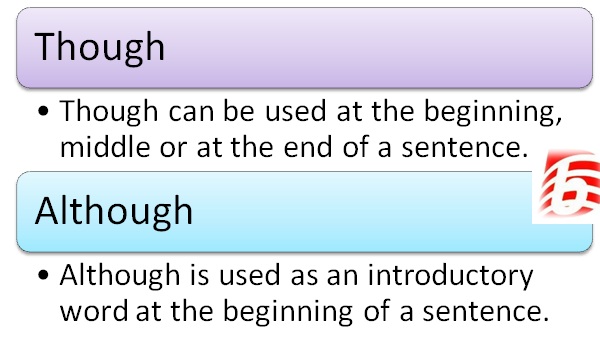Although vs Though
Understanding the difference between the conjunctions “although” and “though” is essential for accurate usage in the English language. These two words are often mistakenly used interchangeably. “Though” is a versatile conjunction that can be used at the beginning, middle, or end of a sentence, while “although” is typically used only at the beginning of a sentence.
What does Though mean?
“Though” is generally used in an informal context during academic writing. The usage of this conjunction can be observed in the following sentences:
1. Though he was busy, he could allot some time to go to the hospital.
2. He was very sad though he recovered later.
3. There was no crowd. It was a huge event though.
In these examples, “though” is used at the beginning of the first sentence, in the middle of the second sentence, and at the end of the third sentence. The position of “though” can be changed within these sentences without altering their meaning.
What does Although mean?
“Although” is generally used only at the beginning of a sentence and occasionally at the end of the main clause in a longer sentence. It is primarily used as an introductory word, as shown in the following example:
Although she was late, she was given permission to participate in the event.
What is the difference between Though and Although?
- Though is a versatile conjunction, while Although is not as flexible.
- Though can be used at the beginning, middle, or end of a sentence, while Although is typically only used at the beginning of a sentence.
